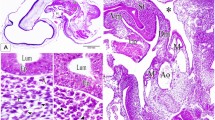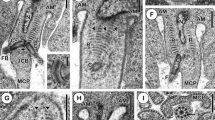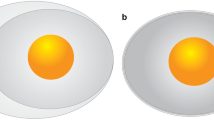Abstract
IT has been shown that plerocercoid larvæ of the cestodes Schistocephalus solidus and Ligula intestinalis may be cultured to maturity in vitro in liquid media at 40° C. under sterile conditions. In the early experiments1,2, although sexually mature tapeworms developed, eggs produced in vitro failed on testing to form embryos. Histological examination revealed that spermatozoa were not present in the receptaculum seminis of the proglottids, suggesting that failure of eggs to form embryos was attributable to non-fertilization. In later experiments with Ligula3, a small number (6 per cent) of embryonated eggs were obtained from larvæ cultured in horse serum.
This is a preview of subscription content, access via your institution
Access options
Subscribe to this journal
Receive 51 print issues and online access
$199.00 per year
only $3.90 per issue
Buy this article
- Purchase on Springer Link
- Instant access to full article PDF
Prices may be subject to local taxes which are calculated during checkout
Similar content being viewed by others
References
Smyth, J. D., J. Exp. Biol., 23, 47 (1946).
Smyth, J. D., Parastiology, 38, 173 (1947).
Smyth, J. D., J. Exp. Biol., 26, 1 (1949).
Author information
Authors and Affiliations
Rights and permissions
About this article
Cite this article
SMYTH, J. Parthenogenetic Development of Eggs from a Cestode Cultured Aseptically in vitro. Nature 165, 492–493 (1950). https://doi.org/10.1038/165492a0
Issue Date:
DOI: https://doi.org/10.1038/165492a0
Comments
By submitting a comment you agree to abide by our Terms and Community Guidelines. If you find something abusive or that does not comply with our terms or guidelines please flag it as inappropriate.



